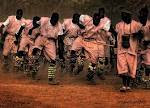LEARN MORE ABOUT YOUR TRIBE
FACTS YOU NEVER KNEW ABOUT THREE
MAJOR TRIBES IN NIGERIA
HAUSA TRIBE:
The Hausa
tribe of northern Nigeria can be traced back to Bayagida, a prince of Bagdad
that married the Queen of Daura; His children founded the true Hausa states
known as Hausa Bakwal, such as the today Biram, Daura, Katsina, Zaria, Kano and
Gobir. After many years these descendants found another Hausa state called
Banza Bakwai, they are the today Zamfara, Kebbi Gwari and Yuari.
Prominent
among the rulers of the Hausa states are Mohammed Rimfa (1463 – 1493), he was
helped by Almighili; a Muslim scholar and missionary to make Islam, a state
religion.
Zaria became powerful under the rule of Queen Barkwa Turunku and
Queen Amina in the 17th and 18th centuries.
THE IGBO
TRIBE:
 Their system of
government at the time was the patria-lineal clan system and every clan and
village traced themselves back to their ancestors, just like the Israelites.
The Clan or village pattern of settlement was an ancient form of democracy.
Their system of
government at the time was the patria-lineal clan system and every clan and
village traced themselves back to their ancestors, just like the Israelites.
The Clan or village pattern of settlement was an ancient form of democracy.
They are
four major institutions of government in the Igbo land.
a.
The
Ezes and Ndi Nzes i.e. the Kings
b.
The
Ndi amala or Council of elders
c.
The
age grade societies
d.
Village
assembly called Ohamaeze i.e. king makers
The Igbo
tribe remained the most peaceful state before the coming of the European, as
they had lesser intra/inter-tribal wars and prevented the Fulani Jihadist from
conquering them and imposing Islam
THE YORUBA
TRIBE:
The Yoruba
tribes originated from Oduduwa, who came from the North West Africa and settled
at Ife, but Oral tradition and believe say that Oduduwa came from heaven to
Ile-Ife and created the earth. He had a son known as okanbi and his descendants
spread over the lands to the seven Yoruba kingdoms
a.
Oowu
b.
Sabe
c.
Ketu
d.
Popo
e.
Benin
g.
Ila
His descendant
Oranmiyan formed the Old Oyo kingdom around the 14th century and Ife
became the spiritual capital and cultural centre of the kingdom. The government
of the Old Kingdom consisted
i.
Alafin
- who is the spiritual head
ii.
Oyomesi
- who are seven with the Bashorun
as the head, they are like the supreme council and king makers
iii.
Ogbonis
- social society that mediates
between the Alaafin and Oyomesi
iv.
Eso
- these are the Lords with Are-Ona Kakanfo as
the commander-in-Chief
v.
Ilari
- these are the palace
officials and administrators.
The Oyo
kingdom was once ruled by an Allaafin by the name of Sango, who is now
worshiped as the god of war and thunder; in 1765, the Bashorun Gaha upset the
balance to his own favor and reduced the powers of the Alaafins, but in 1770,
Alaafin Abiodun destroyed Gaha and his family and restored the powers of the
Alaafin as before.
In 1837,
Fulani Jihadist went down to south and destroyed the Old Oyo Kingdom.







.jpg)


Comments
Post a Comment
Leave a comment here.